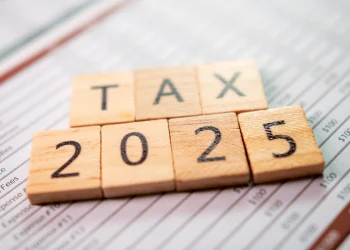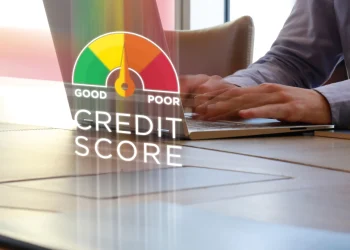What Does It Mean to be Financially Independent?
At its core, being financially independent is freedom – freedom from the daily grind of working a traditional job solely for the paycheck. It means reaching a point where your net worth generates sufficient passive income or investment returns to cover your essential living expenses without relying on earned income from employment. Most experts estimate requiring assets of around 25 times your annual cost of living as a reasonable target, though individual circumstances of lifestyle, location, asset allocation, and expected inflation influence this. Financial independence allows prioritizing what matters – whether that be family, hobbies, travel, or causes you’re passionate about.
What Are The Lifestyle Benefits Of Independence?
Freedom from the workplace grind opens up a world of opportunity that comes with security and peace of mind. You gain the flexibility to relocate cities, travel long-term, spend more quality time with loved ones, follow passions, and start a business or non-profit at your own pace without obligations dragging you down. There’s also less worry about job loss, age discrimination, or an evolving career landscape. You’ll have more control over your schedule and live life on your terms without financial constraints hindering the pursuit of purpose. The sense of autonomy cannot be understated for holistic well-being.
How Can I Determine My Target Number?
Carefully tracking expenses is step one. Maintain budget spreadsheets or apps breaking down monthly housing, utilities, food, transportation, insurance, medical costs, debt payments, and other necessities accurately for a full year. This illuminates true spending and establishes your baseline cost of living. Multiply this average by 12-36 months to derive a preliminary target cash reserve as well. Next, estimate annual costs decades into the future factoring healthcare, inflation projections, and lifestyle changes. Access calculators that incorporate projected returns and FIRE calculators provide sample benchmarks for various locations, lifestyles, and markets.
Should I Aim For Full Independence Or Lean FI?
“Lean FI” signifies having adequate investments to safely support a low-cost lifestyle with part-time supplementary work if desired, rather than severing employment entirely. This flexible approach requires less upfront capital compared to full-blown FI but maintains autonomy without the pressure of a traditional job or career. Some prefer this as a middle ground to preserve health insurance, social engagement, or earning potential, or to hedge against sequence of return or longevity risks. Ultimately depends on personal goals – both provide independence without reliance on the 9-5 grind for core spending needs.
What Is A Sound Savings Framework?

Establishing solid savings habits is paramount for independence. A well-structured approach is the 50/30/20 budget model where 50% of post-tax income funds necessities like housing and food, 30% covers discretionary expenses, and 20% funnels directly into tax-advantaged retirement accounts, investment accounts, and debt repayment each month. Tracking income against this template keeps spending aligned with long-term priorities. Savings should be built through consistent, ongoing behaviors rather than sporadic bursts to reach independence sustainably over time.
Are Home Equity And Real Estate Part Of The Plan?
Owning real estate plays an important role in accumulating net worth for many through forced savings of principal paydowns on mortgages. Primary residences provide shelter needs while secondary rental properties bring positive cash flow over time. Both build equity that can be accessed via strategies like refinancing, home equity lines of credit, or downsizing in retirement to supplement living costs. Research has shown combining real estate appreciation and forced appreciation through steady contributions is highly conducive to achieving financial independence. Though not for everyone based on lifestyle factors, utilizing housing strategically amplifies overall returns.
Which Accounts Maximize Tax Advantages?
Prioritizing tax-advantaged accounts like 401ks with employer matching, IRAs, Health Savings Accounts and 529 education plans first is advisable. 401k and IRA contributions in 2022 allow $20,500 and $6,000 annual deductions respectively which cuts taxes while funds grow tax-deferred. Once maxed out, the focus shifts to taxable brokerage investing. Roth options like Roth IRAs offer tax-free qualified distributions in retirement. Choosing the right accounts significantly impacts overall returns through a career thanks to compound growth untouched by taxes each year. Consult with a financial advisor as needed on optimizing benefits.
How Does Passive Income Help Becoming Financially Idependent?
Building streams of passive or portfolio income using skills, expertise, or assets to generate ongoing payments without active work accelerates financial independence attainment. Strategies can include blogging, e-courses, buy-and-hold dividend stocks, peer-to-peer lending, affiliate marketing, royalties and residuals, real estate rentals, annuities, and more. Income and profits ideally compound without requiring significant dedication. While starting income generators takes work upfront, ongoing payoff potential makes them appealing diversifiers. Don’t overextend yourself – build streams effectively utilizing skills and interests for intrinsic motivation.
What Is The 4% Withdrawal Rule?

The 4% rule serves as a prudent guideline for crafting sustainable annual distributions from a portfolio in retirement without depleting savings over 30 years based on historical market data. It involves withdrawing 4% of the account balance in the first year of retirement, and then adjusting further payments for inflation annually. Proper asset allocation focused more on a fixed income than stocks along with several years’ living expenses stored as a cash buffer protects against a sequence of returns risk, bear markets, and unexpected costs that could threaten the portfolio in later decades of retirement. Combined with other income sources, 4% of distributions allow sleeping well.
What Habits Maximize The Longevity Of Savings?
Ongoing review, setting benchmarks, automating contributions, limiting lifestyle inflation, maintaining emergency funds, controlling investment fees, prudent rebalancing, and risk management all ensure assets last for decades of independence. Consider annuities and pensions if spouse or dependents are involved to protect their wellbeing as well in case of premature death. Practicing financial discipline and mindfulness around spending aligns behaviors with long-term goals. Building resilience through diversification and periodic stress testing prepares for inevitable market volatility or unexpected bumps in the road. Humility and flexibility foster lifelong habits of growth and learning too as macro environments shift.
What Benefits Of Becoming Financially Independent?
No destination arrives without some challenges along the way – whether overcoming recessions, setbacks, or periods of sacrifice to reinforce discipline. However, the freedom offered will far outweigh any struggles of accumulating. Financial independence provides a daily tranquility hard to describe until experienced firsthand. Waking without obligations allows living intentionally according to preferences. Limitless opportunities emerge by being proactively responsible for one’s situation rather than reacting to the circumstances of others. Few outcomes in life match the deep satisfaction, empowerment, and gratitude that follow the conscious design of personal well-being, security, and fulfillment through prudent money management habits over time. That is what makes the journey so worthwhile.
Conclusion | How to Become Financially Independent
Becoming financially independent requires diligent savings rates, prudent investment practices, tax utilization, and passive income generation maintained unwaveringly for many years. However, the lifestyle rewards of autonomy, longevity, security, fulfillment, and time freedom greatly outweigh the upfront discipline required. Developing behaviors aligned with sustainability delivers lifelong pride, confidence, and the ability to chart one’s course come what may. With patience and consistent progress, independence becomes a realizable reality.
Disclaimer
Finance Today strives to provide our readers with factual, informative articles and resources on finance, investing and business. However, the contents featured on this website, including any articles, market commentary, tracks, trades, or other information, should not be considered personalized investment advice.













